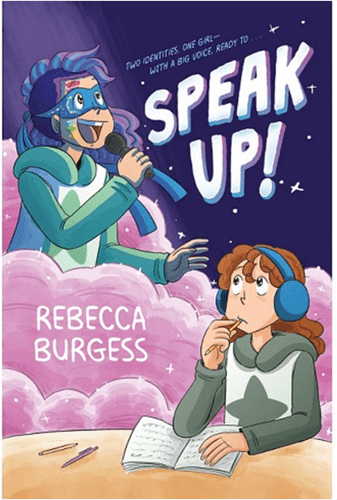Originally published at: San Diego Comic Con brings a “fantastic” spotlight to autism representation with “Autism in Comic Books” - Newsroom
Author: Newsroom
There aren’t very many autistic characters in kids pop culture, even though the CDC currently estimates that 1 in 31 kids is autistic. In the world of comic book publishing, with tens of thousands of characters in its 85-year history, only about 35 are autistic. That number has been a recent improvement, especially if you include the leader of the Fantastic Four in writer Ryan North’s current run: Reed Richards, aka Mister Fantastic.
Readers have speculated for decades that brilliant adventurer Reed Richards might be autistic. Previous writers Grant Morrison (2001) and Roberto Aguirre-Sacasa (2012) alluded to it in print, but Ryan North has confirmed that his Mister Fantastic is autistic, in response to a fan’s question in 2022. Reed Richards is a respected world leader, a heroic adventurer, a devoted husband and father, an unparalleled scientist, the lead of an upcoming Marvel movie, and he is autistic.
Reed Richards and about thirty more autistic comic book characters get the spotlight treatment in “Autism in Comic Books,” a panel that will be presented at San Diego Comic Con by The Autism Scene, a nonprofit furthering the inclusion of explicitly autistic characters in kids pop culture. Moderator Britton Payne details the history of autistic characters in comic books, some of which is a bit troubling. “The writers may have had good intentions, but a lot of those older representations of autism aren’t how they would be presented today,” said Payne. These include Aquaman’s nemesis Black Manta, nonspeaking Avengers foe Nuklo, and lots of X-men characters. But Payne thinks they are still worthwhile. “There are so few autistic comic book characters. These past representations may be problematic, but don’t throw autistic characters away – fix them!”
Many more recent autistic characters are from “slice-of-life” comics, like manga series “With the Light,” the autobiographical graphic novel “Invisible Differences,” and Archie comics web series “Big Ethel Energy.” One popular comic is from panelist Rebecca Burgess, author of the young adult graphic novel “Speak Up!” which features an autistic main character navigating her way through high school. “I was so sensitive compared to other people, and I felt ashamed that I couldn’t be like other kids, or the heroes in the stories I read, who could take everything in their stride,” says Burgess. On the panel, Burgess will discuss their experiences as an autistic comic book creator, and of creating autistic comic book characters for young readers.
This panel shows that autistic characters are in comic book adventures, romances, horror, fantasy, mystery, history – just like in real life. As Payne puts it, “Autistic people are in every part of life, and can be in every part of our children’s pop culture – which these comics show!” Making her San Diego Comic Con panel debut at the age of 9 is Eleanor Payne, avid reader, autism advocate and Britton Payne’s daughter. Eleanor will be discussing the graphic novels and comics aimed at kids that have autistic characters. The new comic “Chanter” from Hawaiian publisher “Mana Comics” features a nonspeaking autistic girl accepting the family mantle of spellcaster and finding her own path as a hero. Marc Bernardin’s “Adora and the Distance” is a fantasy exploration of a girl protecting her kingdom, and the author exploring his relationship with his autistic daughter. And “The Mighty Jack” updates “Jack and the Beanstalk” to include Jack’s nonspeaking autistic little sister Maddy as they have epic adventures in fairy tale fantasy worlds.
Both Paynes love talking about comic books, and this panel merges that passion with a personal mission. “When I have done this panel before, it received an extremely warm reception,” Britton Payne said, “Especially the neurodivergent con-goers – and there are lots of them. In particular, they were really pleased to see a positive and thoughtful discussion of autism in pop culture. As we all have come to understand, representation is very important to the attendees of our comic cons, and this panel was singular in serving an important part of our community. Because of my son’s autism, I’m on a bit of a mission to get the world to better understand and welcome our neurodivergent friends, colleagues and neighbors. I love comics, and think they are a unique mode of modeling and spreading that message.”
Contact: Britton Payne, britton.payne@gmail.com, (917) 561-3496
Sunday July 27 at 1pm in Marriott Marquis Room 11, San Diego Comic Con International.
